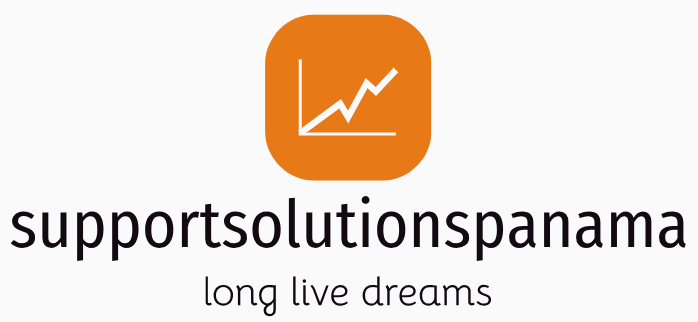Fostering Progress: Building a Dynamic Workplace Culture


Cultivating Success: Nurturing a Progressive Workplace Culture
In the contemporary business landscape, the significance of workplace culture cannot be overstated. A progressive workplace culture goes beyond traditional norms, emphasizing inclusivity, innovation, and employee well-being. Let’s explore the key elements that contribute to fostering a dynamic and progressive workplace culture that drives organizational success.
Defining Progressive Workplace Culture
At the heart of a progressive workplace culture is a commitment to values that promote growth, diversity, and adaptability. This culture encourages an environment where employees feel empowered, engaged, and motivated to contribute their best. It is a departure from rigid structures, embracing flexibility and valuing the unique perspectives each individual brings to the table.
Progressive Workplace Culture: A Link to Success
In the pursuit of building a progressive workplace culture, the platform “Progressive Workplace Culture” serves as a valuable guide. This platform offers insights, strategies, and success stories to empower organizations in their journey towards cultivating a dynamic workplace culture. Explore essential resources for success at supportSolutionsPanama.com.
Inclusivity as a Cornerstone
In a progressive workplace culture, inclusivity is not just a buzzword; it is a cornerstone. Organizations prioritize creating an inclusive environment that embraces diversity in all its forms – be it in terms of gender, race, background, or perspectives. Fostering inclusivity enhances creativity, encourages collaboration, and contributes to a vibrant workplace community.
Flexible Work Arrangements for Work-Life Balance
Recognizing the evolving needs of employees, progressive workplace cultures embrace flexible work arrangements. Whether through remote work options, flexible hours, or compressed workweeks, organizations prioritize work-life balance. This flexibility not only enhances employee satisfaction but also contributes to increased productivity and loyalty.
Employee Development and Learning Opportunities
A progressive workplace culture places a strong emphasis on continuous learning and professional development. Organizations invest in training programs, workshops, and educational opportunities that empower employees to expand their skill sets and stay abreast of industry trends. This commitment to learning fosters a culture of growth and adaptability.
Progressive Leadership and Transparent Communication
Leadership in a progressive workplace is characterized by transparency, accessibility, and a commitment to shared values. Progressive leaders communicate openly with employees, involve them in decision-making processes, and provide clear direction. This leadership style fosters trust, encourages collaboration, and sets the tone for a positive workplace culture.
Employee Well-Being and Mental Health Support
Prioritizing employee well-being, including mental health support, is a key component of a progressive workplace culture. Organizations implement wellness programs, provide mental health resources, and create an environment where employees feel supported in both their professional and personal lives. This holistic approach contributes to a healthier and more engaged workforce.
Nurturing Innovation and Creative Thinking
Innovation thrives in a progressive workplace culture that encourages creative thinking. Organizations create spaces for brainstorming, value experimentation, and celebrate new ideas. This commitment to innovation not only keeps the organization ahead of the curve but also fosters a sense of excitement and purpose among employees.
Environmental Sustainability Initiatives
As global awareness of environmental issues grows, progressive workplace cultures incorporate sustainability initiatives. From eco-friendly practices in the office to community outreach programs, organizations actively contribute to a more sustainable future. These initiatives align with the values of socially responsible employees and enhance the organization’s reputation.
Feedback and Recognition for Continuous Improvement
A progressive workplace culture places a strong emphasis on feedback and recognition. Regular feedback sessions provide opportunities for improvement and growth, while recognizing and celebrating achievements boosts morale. This culture of continuous improvement and acknowledgment contributes to a positive and motivated workforce.
Conclusion: Fostering a Culture of Progress
In conclusion, cultivating a progressive workplace culture is a journey that requires commitment, adaptability, and a focus on the well-being of employees. By embracing inclusivity, flexibility, continuous learning, and innovation, organizations lay the foundation for success in a rapidly changing world. Platforms like “Progressive Workplace Culture” provide essential resources and insights, guiding organizations towards fostering a dynamic culture that propels them to new heights of success.




![Discover the Future of [Product Category] Discover the Future of [Product Category]](https://images.unsplash.com/photo-1700104494865-200e961d942c?fm=jpg&q=60&w=3000&ixlib=rb-4.1.0&ixid=M3wxMjA3fDB8MHxzZWFyY2h8OXx8cHJvZHVjdCUyMGxhdW5jaCUyMG1hcmtldGluZyUyMGNhbXBhaWdufGVufDB8MHwwfHx8Mg%3D%3D)




